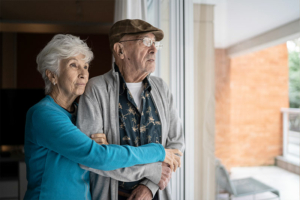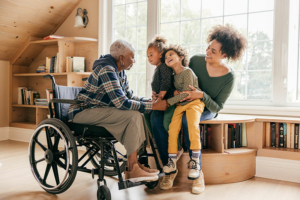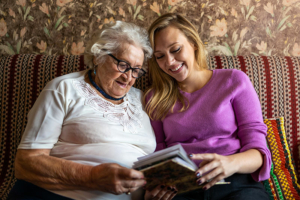How to Support Aging Parents Who Resist Assistance

These tips will help you know how to support aging parents who need help but refuse to accept it.
It is a challenging predicament many family caregivers encounter: your elderly parents, who once looked after you, now resist the aid they so desperately need to remain safe and comfortable living at home. Family members face a delicate balance between respecting their parents’ freedom and protecting their safety and well-being. When you are in this situation, you’re not alone! We understand the range of emotions associated with accepting the need for help, and have some suggestions that will help you understand how to support aging parents who are resistant to accepting care.
See It From Their Perspective
Understanding the reasons for your parents’ resistance is a good place to start. In many cases, it arises from a wish to retain self-sufficiency and control of their lives. Aging can be a daunting process, marked by physical and cognitive changes that can leave seniors feeling vulnerable. By refusing support, they might be seeking to affirm their autonomy and preserve a feeling of dignity.
However, their refusal can also be fueled by fear or denial. Acknowledging the need for assistance can be intimidating, as it might signify a loss of independence. Additionally, some individuals may simply not understand the extent of their limitations or even the available support options.
Reaching an Agreement About the Need for Care
So, what can be done when faced with this challenging scenario? First, come to the discussion with understanding and empathy. Acknowledge your parents’ feelings and concerns, and assure them that your goal is to support them in maintaining their independence and well being.
Begin by listening actively to their position. Understanding their reasons for resisting care can help you tailor your approach and deal with their specific fears. Reassure them that accepting help does not mean that they are losing control, but rather that they are ensuring they will be able to live at home safely and comfortably.
Compromising is often a great way to reach agreement with your parents. For example, if the idea of having help with baths or showers is off-putting, propose the idea of assistance with housekeeping, meals, and running errands. When they get to know and trust their caregiver with these types of less-intimidating services, it’s easier to work your way up to additional care.
If your parents are still unsure about accepting help, consider enlisting the help of a trusted third party, such as a doctor. In some cases, hearing advice from an objective professional can carry more weight than coming from a member of the family.
Most importantly, keep in mind that change doesn’t happen overnight. It may well require several conversations and gentle persuasion before your parents feel more comfortable about accepting help. Be persistent yet compassionate, and always prioritize their feelings and wishes.
At Responsive Home Care, we have helped many older adults live fuller and more enriching lives at home, and we are here to help your parents whenever they are ready, with tailored in-home care solutions in Fort Lauderdale, Deerfield Beach, Plantation, and the neighboring communities. We offer a complimentary in-home consultation to help you and your parents talk through the services that will best meet their needs. Reach out to us any time at 954-486-6440.










 Everyone goes through good days and bad days, and everyone is entitled to negative thinking or irritability every now and then. If you are caring for an older adult who appears to have fallen into a routine of continual negativity and complaining, there could be a reason for it. It’s worthwhile to explore whether or not a health issue may be the culprit for negative mood changes in a senior.
Everyone goes through good days and bad days, and everyone is entitled to negative thinking or irritability every now and then. If you are caring for an older adult who appears to have fallen into a routine of continual negativity and complaining, there could be a reason for it. It’s worthwhile to explore whether or not a health issue may be the culprit for negative mood changes in a senior.